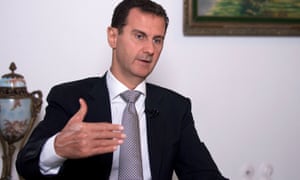Jillian D'Amours
TORONTO, Canada - Following the coup attempt on July 15 in Turkey, President Recep Tayyip Erdoğan quickly denounced the person he believed to be behind the insurgency.
The Turkish president said repeatedly that the coup leaders received orders "Pennsylvania", referring to rival the Justice and Development Party leader (AKP), Turkish religious living in the United States Fethullah Gulen.
In the days following the failed coup, Ankara has officially asked the US government to extradite Gulen, who lives in self-imposed exile in Pennsylvania since 1999.
"When we hand over the terrorist mastermind living in Pennsylvania, everything will be clear," said Erdoğan at the crowd in Istanbul on Saturday following the coup.
Gülen, meanwhile, denied any involvement in the attempted coup, accusing Erdoğan of using it as a pretext to attack him and his supporters. "It's ridiculous, irresponsible and wrong to claim that I have something to do with this horrible failed coup," said the monk in a
statement released Tuesday.
"I urge the US government to reject any attempt to misuse the extradition proceedings in order to conduct political vendettas. "
However, major questions remain about the involvement of Gülen and the role of members of güleniste movement, also known by the name of movement Hizmet (service), in recent events.
Who is Gulen?Fethullah Gulen was
born in 1941 near Erzurum in north-eastern Turkey. It became known as Muslim preacher and intellectual in the 1970s, calling for interreligious dialogue, modern education and activism based on faith.
"The Gülen movement is different from other Islamic movements with its emphasis on the importance of ethics in education, the media, business and public life," wrote Gürkan Çelik, author of The Gülen Movement: Building Social Cohesion through Dialogue and Education , a work that has a very positive assessment of the ideology and activities of Gülen.
The Gülen movement
told oppose the use of Islam as a political ideology and presents itself as a moderate force advocating cooperation and dialogue.
He is active in the fields of education, dialogue, humanitarian and media in more than 160 countries worldwide, according to the Center for Studies on Hizmet, a nonprofit organization based in London and affiliated with Gülen.
Several non-profit organizations affiliated with Gulen, including the Foundation of Journalists and Writers of the Turkish and the Alliance for common values, have been created, and the movement also organizes seminars and conferences. Gülen millions of followers worldwide, though the exact number is unknown.
But beyond the establishment of schools, charities and non-governmental organizations, supporters of Gülen also have a "dark side", recently
wrote Turkish columnist Mustafa Akyol.
The reports and media investigations showed that gülenistes were behind a "secret organization within the state, a project that continues for decades to establish a bureaucratic control over the state," Akyol wrote.
Last year, Ankara has hired the law firm Amsterdam & Partners LLP to investigate the global activities of the Gülen movement and exposing his alleged wrongdoing.
"The activities of the Gülen network, including its infiltration of Justice and the Turkish police and political lobbying abroad, should worry all who care about the future of democracy in Turkey", said to time the
founding partner Robert Amsterdam .
Turkey has officially registered the Gülen movement as a terrorist organization in May.
"We will not leave alone in this country those who divide the nation", said Erdogan at the time."They will be brought to account. Some fled, some are in prison and judged now. This process will continue. "
"A very bitter divorce"However, relations between Erdoğan and Gülen has not always been as explosive.
Erdoğan was close to Gülen for decades and the two leaders were opposed to the secular Kemalist forces in Turkey.
They also shared the goal of transforming Turkey into a state whose essence would be a "Turkish nationalism with a strong conservative religiosity," said Ariel Salzmann, associate professor of Islamic and international history at Queen's University in Canada.
Erdoğan and Gülen were "partners seeking to take power for decades," Salzmann said.
These leaders shared the same opposition to the Kemalist forces in Turkey for many years and, even if it is not launched himself into politics, Gülen supported the AKP - and has mobilized its supporters - when the party was founded and later came to power.
The members of the Gülen movement have also been linked to two notable cases in Turkey: the Ergenekon and Sledgehammer investigations, which focused on alleged attempts to overthrow the government of the AKP and Erdoğan.
The Ergenekon case has led to the arrest of Ahmet Sik, a journalist who wrote a book about the Gülen movement and the alleged his influence in the Turkish security forces. Critics say the Ergenekon case was only a pretext to target dissidents.
"It's a modern Islamic brotherhood," said Salzmann to Middle East Eye on the debut of the relationship between Gülen and Erdoğan.
"They had common interests and were complementary in many ways," said Salzmann.
The links between Erdoğan and Gülen began to fray when supporters of Gulen in the police and justice "have become too independent," according to Salzmann, and they are aggravated when Gülen himself criticized Erdoğan for his handling of the Gezi park demonstrations in 2013.
Later that year, Erdoğan said that Gülen and his followers tried to bring down his government through a bribery investigation involving several officials and business leaders with ties to the AKP and led to the resignation of ministers of the AKP.
The government also accused members of the Gülen movement have tapped government officials.
Since then, Erdogan has repeatedly stated that Gülen runs a "parallel state" in Turkey and its government suppressed the Gülen-affiliated institutions, including the popular newspaper Zamanand Bank Asya.
"I think the idea that there would be someone who would question [Erdoğan], which was slightly disagree with him, with his ideas and methods led to this confrontation, which resulted in the decision State control of all entities linked to Gülen, "said Salzmann.
"It's really a very bitter divorce," she added.
güleniste Education NetworkGülen extended its influence significantly by establishing schools in Turkey and by progressively public and private academic institutions in other countries.
According to the university Bayram Balci, these schools have the same goal: "creating new modern elites capable of modernizing Muslim societies."
"The movement is very modern. They provide a modern and generally very secular education, but at the same time conservative, "said Balci at MEE , likening supporters of education linked to Gülen abroad to the Jesuits, known for their missionary work.
"They are elitist, modern, mysterious and they travel around the world to spread their values," he said.
Balci, an expert on the influence of gülenistes institutions in Central Asia and the Caucasus, toldMEE that Gülen had chosen to focus on the expansion of its movement in the region after the fall of the Soviet Union in the early 1990.
At the time, countries such as Albania, Bosnia, Macedonia, Azerbaijan, Kazakhstan, Kyrgyzstan and other Central Asian countries were more open to foreign influence - and in particular, Turkish "he explained.
The movement is also linked to about 150 charter schools - public schools that are managed by the private sector - the United States, although many of these schools deny any link with alleged Gülen or güleniste influence on their operations.
"This refusal of affiliation is not unique to these schools under contract," said Joshua Hendrick, a professor at Loyola University in Maryland and author of Gülen: The Ambiguous Politics of Market Islam in Turkey and the World .
"What is and is not an affiliate [...] with the Gülen movement has always been something without direct response from those who were asked this question. "
Hendrick told MEE that since these schools are technically public, they must offer the programs established by the districts in which they operate. Schools do not engage in direct religious teachings, but all offer Turkish language option and give students and parents a chance to make a trip sponsored by Turkey.
"They are much more Turks in what they are trying to present as an alternative. This falls under their Muslimness and their Turkish identity, "said Hendrick.
The Gülen movement aims to accumulate and influence, said Hendrick, in order to create social change in Turkey in the long term. However, gülenistes prefer to use their influence to support political actors rather than participating themselves directly in politics.
In the US, individuals affiliated with Gülen also extend beyond charter schools, and they can be found in the media, finance, retail, catering, law, accounting, businesses and even farms, said Hendrick.
"Schools are the element most blatant and so anchor of the community, but in no case [this influence] is not limited to schools," he said.
Behind the coup?While Erdoğan has consistently dismissed the alleged Gülen sympathizers in the police, judiciary and the media, the Turkish army was "the last bastion remaining gülenistes in Turkey",
recently wrote Dani Rodrik, Professor of International Political Economy at Harvard University.
He said Erdogan was preparing to purge the army of officers gülenistes, meaning they "had a pattern, and the time of the attempt [coup] accredits their involvement."
However, a violent coup is not a usual tactic of gülenistes, according to Hendrick.
"Whatever we want to say about the Gülen movement, he is not incompetent organizationally. They have the capacity to play the long game, be patient, be clear about their objectives for their constituents ... and the disorganization and fragmentation of it all, poor planning and the speed with which the coup was crushed seem curious, "he said.
"This does not look anything like their procedure. "
At the same time, Salzmann says that Gülen has become a "lure" Erdoğan used to justify the repression of all opposition perceived in Turkey and greatly limit freedoms.
Since the attempted coup, the Turkish government introduced a state of emergency for three months, during which he will suspend the European Convention on Human Rights.
Turkey banned the university to leave the country, closed hundreds of schools, suspended the annual leave of three million civil servants and arrested, dismissed or suspended at least 50,000 policemen, soldiers, judges, teachers and other professionals.
Impact "cataclysmic "Erdoğan then repressed all that is linked to Gülen in Turkey, it was him until now difficult to close similar structures outside the country, according to Balci.
"It's hard to outlaw movement and its schools while you have supported them for over twenty years," he said.
"In Central Asia, for example, schools have started to form new elites in 1991, when the USSR collapsed, so for twenty years or more, many people went to these schools in perfect legality. "
Yet Hendrick added that if Erdogan could prove - in accordance with high legal standards to the international level - that Gülen was indeed responsible for attempting to overthrow his government, the impact on gülenistes activities around the world would be "cataclysmic ".
"It would immediately become what his critics said it was and is for 40 years," said Hendrick.
"Knowing that there is conclusive evidence that the organization operating in their country tried to overthrow their business partners, I do not see how that host country [the US] may continue to allow this entity to operate .
"It would be cataclysmic for their future on the existential level if this was correct. "









































